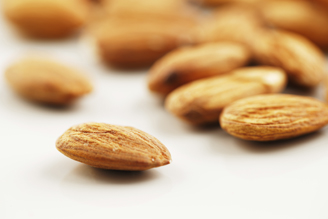Insight into the 3 Major Macro Nutrients for Athletes
The following is a guest blog from Sandy Musson, owner of Trenton, Ontario-based Tri and Run Sports. An avid marathon runner, Sandy is a Certified Pedorthist (C. Ped) and ACE Certified Personal Trainer with specialized training in gait, biomechanics, orthotics, posture and run coaching.
While many turn to activity to lose or maintain weight, they either don’t change their diet or they don’t know what to eat in relationship to their activity to affect change in their body mass or to provide energy. I find the most over-looked information when manipulating food types and calories is the basics of what each macro nutrient does in the body. The three major macro nutrients are fats, carbohydrates and protein. While all have become controversial and even vilified within modern diets, they are all necessary to proper function and health. Without discussing specific amounts, here’s a quick review of what each one does.
Protein
Protein provides the building blocks of the body for growth and repair. However, it only provides about 15% of your energy requirements, and only when carbohydrate sources are low. Protein is extracted from food eaten within a certain period of time; if not eaten, the body will break down muscle tissue to provide it.
On the other hand, if too much protein is consumed, what isn’t used immediately for tissue building and repair will be converted and stored. Additionally, when too much is consumed, the ammonia formed as a by-product cannot be eliminated through urine, so it’s lost in sweat. In healthy people, the body will slow stomach emptying as a way to protect against ammonia overload; this can make some people feel nauseated, particularly if they have a tendency to become dehydrated.
Good sources of protein are meat, eggs, fish, milk, nuts, seeds, legumes, quinoa, bulgar and more. Protein takes about four hours to leave the stomach.
Carbohydrates
Carbohydrates, possibly the most notorious of nutrients, have shouldered the blame for a multitude of physical conditions. With carbohydrates present in everything from cereal to fruit to peanut butter and sweets, it is our job to be a little more discerning than “I don’t eat carbohydrates.”
Carbohydrates provide the most easily accessed energy for the working body, as ALL carbohydrates are broken down into their simplest form, which is glucose. More fibrous carbs take longer to break down - up to three hours to leave the stomach, while simple sugars can be in the blood stream within minutes of ingestion.
Our bodies like glucose so much for energy that it is stored in the blood stream and in the muscles. About 90 minutes worth is stored for immediate use and as a ready fuel source for the brain.
Fats
Fats typically provide over half of the body’s energy needs, but ONLY if the following conditions are met: you are working easy enough to be oxygen dependant in your energy metabolism (previously referred to as aerobic), there is glucose present, and that your body is efficient at releasing oxygen into the cells. Only one of these elements needs to be absent for your stored fat to stay put.
To apply this information to your sport, first look at when you are eating certain macro nutrients in relationship to activity. For example, it does no good to eat a peanut butter sandwich right before heading out for a 30 minute run, as it won’t leave your stomach until two to three hours after you have finished; however, it would be a great post-run recovery snack.


